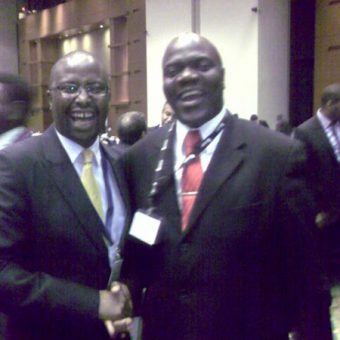A Balance Between Trade and Aid Needed to Achieve Growth in Africa
Debate has been raging in the past few years on the remedies needed to achieve economic growth on the African continent while reversing poverty and dealing decisively with some of its unintended consequences such as corruption and graft.
It is a fact that most of the problems facing many countries in Africa are self inflicted, especially in the post colonial period. However, it would be a terrible injustice to forget the contribution that colonialism has made to get us where we are today.
The challenge facing most African governments is in coming up with a blue print that will lead Africa out of the current abyss and create the right conditions for the kind of growth that will deal decisively with poverty and place most of these countries, especially in the Sub-Saharan region on the path to success.
The issue in most multilateral forums such as the G8 (which has now become the G20) has been whether Africa needs to continue on the path of seeking more aid from Western and recently Eastern countries as has been the case in the past or chart a new path to expand trade relations with these same nations based on a new relationship characterised by business fundamentals.
At a recent US-Africa Business Summit in Washington DC, organised by the Corporate Council on Africa and attended by various US business executives, their counterparts from Africa and government officials, this issue took centre stage.
The current relations between the US and the continent is governed by the African Growth and Opportunity Act (AGOA), signed by President Clinton in 2000, which has put trade at the core of America’s future relations with the continent.
Whilst AGOA should be the benchmark for future trade relations, it also important that Western nations, especially those guilty of the atrocities of the past, continue to play a role in assisting efforts to correct those wrongs.
The benefits of trade relations are long term, while most people are hungry today and need aid to get them out of their current situation.
A balance between trade and aid, in the short to medium term, is the only logical conclusion and may best guide the way forward in creating a platform for Africa to grow.
This is also taking into consideration that Africa is not homogeneous and may require that each country through regional bodies such as SADC, COMESA and ECOWAS in West Africa craft regional trade policies that will guarantee sustainable economic development for their citizens.
Find Out More
-
The metaverse – Is it important for your business?
June 2, 2022
-
First Year At A Job And It Had To Be 2020!
June 11, 2021
-
PR trends accelerated by the COVID-19 pandemic
February 19, 2021

